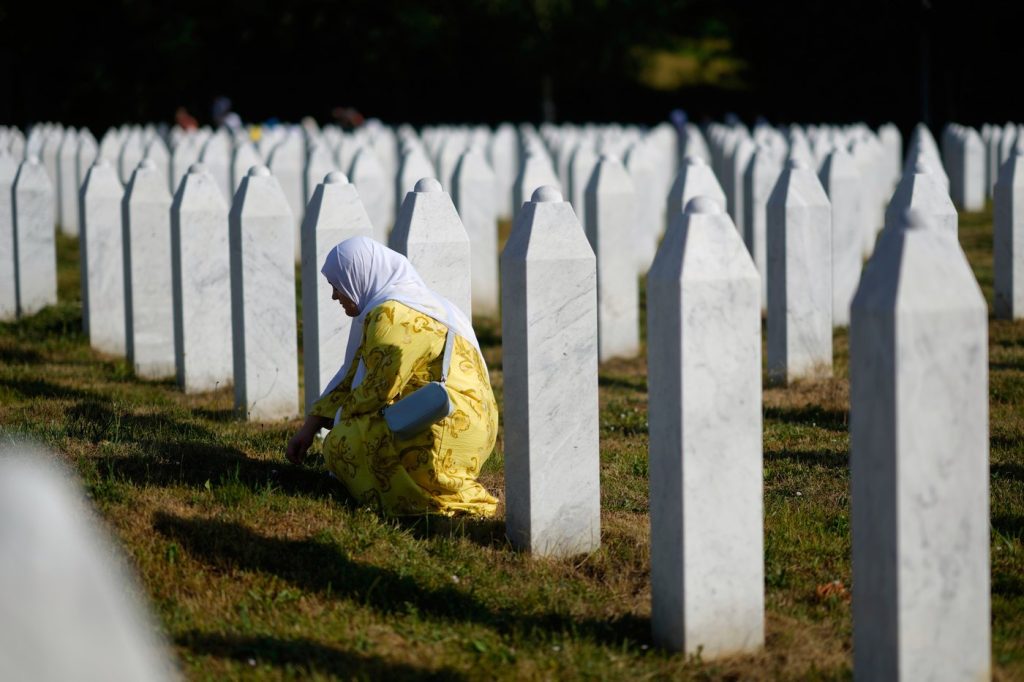SREBRENICA, Bosnia-Herzegovina (AP) — Thousands of individuals from Bosnia and around the globe convened in Srebrenica to commemorate the 30th anniversary of the 1995 massacre, in which more than 8,000 Bosniak Muslim boys and men were killed. This tragic event has been recognized as Europe's only genocide since the Holocaust. The somber commemoration includes the burial of seven newly identified victims, including two 19-year-olds, at a large cemetery near Srebrenica, adjacent to over 6,000 already interred victims. Annually, such funerals are conducted for the victims whose remains continue to be discovered from various mass graves surrounding the area.
Families often face the heart-wrenching reality of burying only partial remains of their loved ones, as many bodies were found scattered across multiple mass graves, sometimes located kilometers apart. Mirzeta Karic, waiting to bury her father, shared her sorrow, stating, “Thirty years of search and we are burying a bone.” With tears in her eyes, she reflected on the loss of her father, who was among the 50 family members killed.
The killings began on July 11, 1995, when Bosnian Serb fighters overtook the eastern Bosnian enclave during the final months of an interethnic war. After seizing control of Srebrenica, designated as a U.N. safe zone, the fighters forcibly separated Bosniak Muslim men and boys from their families, executing them brutally over just several days. The victims' bodies were disposed of in mass graves, later unearthed with bulldozers, and their remains were scattered to obscure evidence of the atrocities committed.
In a significant recognition of the massacre, the U.N. General Assembly adopted a resolution last year to commemorate the Srebrenica genocide on its anniversary. This year, numerous international officials and dignitaries are expected to attend the commemoration and funeral on July 11. On the eve of the anniversary, an exhibition featuring personal items recovered from mass graves was inaugurated, highlighting the personal stories of those lost.
The conflict in Bosnia erupted in 1992 when Bosnian Serbs rebelled against the country's independence from the former Yugoslavia, seeking to establish a separate state and merge with neighboring Serbia. The brutal conflict resulted in over 100,000 deaths and millions displaced before the U.S.-brokered peace agreement in 1995. Today, Bosnia remains ethnically divided, with both Bosnian Serbs and Serbia refusing to acknowledge the Srebrenica massacre as genocide, despite findings from two U.N. courts. Convictions for genocide have been secured against various Bosnian Serb political and military leaders, including Radovan Karadzic and Ratko Mladic.
In a recent statement, Serbian President Aleksandar Vucic expressed condolences on X, calling the Srebrenica massacre a “terrible crime.” He emphasized that while the past cannot be changed, efforts must be made to shape a better future.











